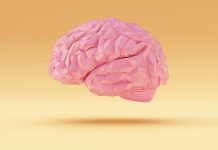
A new study finds that having a stronger purpose in life (PiL) may promote cognitive resilience among middle-aged adults.
This means that having a sense of purpose can help your brain cope with stressors, injuries, and other challenges that may come with aging.
It may also help protect the brain from dysfunction and ensure better cognitive function into old age.
The researchers found that having a purposeful life can change the organization of the brain, with one specific brain network, the dorsal Default Mode Network, showing greater functional connections within its components and with other brain areas.
This network may represent a neuroprotection mechanism that ensures better cognitive function as people age.
The study, which was published in the journal, was conducted by researchers from the Departament de Medicina at the Universitat de Barcelona in Spain.
The data was obtained from 624 middle-aged adults from the Barcelona Brain Health Initiative cohort.
The researchers found that people with a higher sense of purpose had greater connectivity between specific Dorsal default-mode network nodes, which correlated with cognitive performance.
This suggests that changes in the functional organization of the brain may represent the mechanism by which a greater sense of purpose promotes brain health and protects the brain from dysfunction even in the face of stress, adversity, and illness.
While disease-modifying agents to counteract cognitive impairment in older age remain elusive, identifying modifiable factors that promote brain reserve and resilience is paramount.
Purpose in life, one of the pillars of psychological well-being, has previously been found to reduce the deleterious effects of Alzheimer’s disease-related pathological changes on cognition.
Now, this research shows that it may also operate as a cognitive resilience factor in middle-aged individuals.
What’s exciting is that each of us can develop and sustain a robust sense of purpose with appropriate guidance and support, contributing to our brain health and well-being.
This study highlights the importance of psychological factors in maintaining brain health and functioning as we age.
How to increase cognitive resilience
There are several ways to increase cognitive resilience and protect your brain from dysfunction as you age. Here are some suggestions:
Engage in activities that challenge your brain, such as learning a new language, playing an instrument, or doing puzzles.
Exercise regularly, as physical activity has been shown to benefit the brain by improving blood flow and promoting the growth of new neurons.
Get enough sleep, as lack of sleep can impair cognitive function and lead to a greater risk of developing neurological disorders.
Manage stress, as chronic stress can cause damage to the brain and impair cognitive function.
Maintain social connections, as social isolation has been linked to cognitive decline and an increased risk of developing dementia.
Eat a healthy diet rich in fruits, vegetables, whole grains, and lean protein, as certain nutrients have been shown to be important for brain health.
Avoid or limit alcohol and drug use, as substance abuse can damage the brain and impair cognitive function.
By following these tips and making lifestyle changes, you can improve your cognitive resilience and protect your brain from dysfunction as you age.
If you care about Alzheimer’s, please read studies about a primary cause of Alzheimer’s, and common nutrient in meat may be key to preventing Alzheimer’s.
For more information about brain health, please see recent studies about new trigger of inflammation in Alzheimer’s disease, and results showing how alcohol, coffee and tea intake influence cognitive decline.
The study was conducted by Kilian Abellaneda-Pérez et al and published in Alzheimer’s Research & Therapy.
Copyright © 2023 Knowridge Science Report. All rights reserved.



